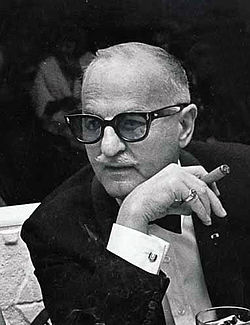| 20th Academy Awards | |
|---|---|
 Official pamphlet cover | |
| Date | March 20, 1948 |
| Site | Shrine Auditorium, Los Angeles, United States |
| Hosted by | No host |
| Highlights | |
| Best Picture | Gentleman's Agreement |
| Most awards | Gentleman's Agreement and Miracle on 34th Street (3) |
| Most nominations | Gentleman's Agreement (8) |
The 20th Academy Awards were held on March 20, 1948, to honor the films of 1947. It is notable for being the last Oscars until 2005 in which no film won more than three awards. There was no host for this ceremony. [1]
Contents
- Winners and nominees
- Awards
- Special Awards
- Presenters and performers
- Presenters
- Performers
- Multiple nominations and awards
- See also
- Notes
- References
Rosalind Russell was highly favored—particularly in a poll from the Daily Variety [2] —to win Best Actress for her performance in Mourning Becomes Electra , [3] but Loretta Young won instead for The Farmer's Daughter . [2]
James Baskett received an Academy Honorary Award for his portrayal of Uncle Remus in Song of the South , which made him the first African-American man, and the first actor in a Disney film, to win an Academy Award for acting. [3]
Winning Best Supporting Actor at age 71, Edmund Gwenn became the oldest Oscar winner, taking the record from Charles Coburn, who was 66 at the time of his win in 1943 for The More the Merrier .
Darryl F. Zanuck, bitter over the failure of the 1944 biopic Wilson to win Best Picture, accepted the prize for Gentleman's Agreement by saying "this award will make up for previous disappointments. [4]






